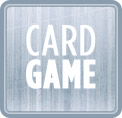Vol2 Updates 04 Jul 2011 06:10 pm by David !
How to craft a story about a single anything.

One of the many amazing needle-felted monsters made by Moxie.
There are now only 11 days left until Volume 2 submissions close. That’s not much time, right? If you’re still dithering or haven’t started working on something, are you already plumb out of luck?
Maybe not. If you haven’t submitted yet, or even started on a submission — I still think it’s possible to put together a shortish, one-to-two-thousand word piece in the time remaining.
But why would you? Is that really enough time to tell an interesting story?
Yes, absolutely! And here’s why stories don’t always need to be epic to be interesting.
An example from improv
Improv theater teaches you that “whatever the scene starts being about, is what it’s about.”
Improv is written collaboratively, as the actors discover and affirm and reinforce each other’s choices. It’s a structure that’s built, brick by brick, by every player in the scene. If information is presented in a scene — say, if one person says “I’m hungry” — then that’s a single brick.
It’s possible for the next player to say “Me too,” and the first person to respond “I wonder what’s for lunch,” and so on — because they haven’t figured out what the scene’s about yet, and they’re just filling time with small talk, waiting for something interesting to be said that will inform everyone what they should really be talking about. The conversation can continue forever about nothing, as the players place bricks on the ground everywhere, but never two on top of one another.
Sometimes, after a period of feeling around in the dark, the players land on something that feels more substantial — finally figuring out how to bridge those original bricks, or ignoring them and placing more new bricks elsewhere. Other times they never do, and the scene ends up just being a pile of bricks arranged haphazardly.
To avoid this situation, improvisers are taught that whatever the scene starts being about, is what it’s about. If one person says “I’m hungry,” then the second person could say “Well, of course! You haven’t eaten for days!” And the scene would be about that person being hungry. Why are they hungry? What has prevented them from eating? A diet? A stomach trauma? Torture? Are they too poor to buy food? Are they on a hunger strike? Are they always hungry, no matter how much they eat? Do they have a tapeworm? How do the other characters feel about the hunger? How does it make them react?
The point is that there are infinite reasons why that person could be hungry. There’s no reason to place bricks anywhere else, because that simple declaration, “I’m hungry,” is enough. The entire scene can be built on top of it. The character’s hunger can be explored to reveal deeper issues — problems with relationships, or self-esteem, or conflicts with other characters in the scene. Thematic elements can arise. The scene has the potential to become emotionally resonant.
All this can come from just “I’m hungry” — if you will just dig into it, and keep digging. There is never any limit to how deep you can go on even the smallest detail.
Trust that the depth is there.
How does this relate to short stories?
A story can easily be grand in scope, about huge events and a lifetime’s worth of drama. That’s fine.
But it’s also possible to craft stories with much tighter scope. In these last 11 days, if you still want to write a story and you don’t think you can — well, you can. You can make it short, and specific, and about one thing. Not a lifetime, not the birth and death of a marriage, not a worldwide revolution…just, for example, someone who’s hungry.
Stories can start at Level One and go to Level Fifty, hitting a bunch of notes along the way and twisting and turning like a Grand Prix car…
Or, they can start at Level One and go to 1.01, then 1.015, then 1.0151, then 1.0152. They can dig into details. Themes can be illuminated through the use of metaphors — Lucy’s relationship with her mother need not be described over the years; rather we might hear a single conversation that we understand to be typical. Jim’s fear of water need not be recounted in anecdotes from his childhood, but rather his behavior at a beach trip could be described in intimate detail.
In other words, stories can start with a character who’s hungry, and then instead of going past that to show every meal that she eats or doesn’t eat for the rest of her life, she can tell us why she’s hungry. And how that hunger feels, and what she says that indicates what’s led to this, and who else cares about her hunger, and how that person reacts… and by the end of the thing, after we’ve explored this detail that seemed at first to be insignificant, we understand this character’s place in the web of herself and her relationships and her society. Small, rich moments are like pinhole cameras: tiny windows into larger thematic ideas.
It doesn’t have to be long.
And it doesn’t have to be convoluted. If you don’t know what to write, start with anything. If you dig into it, if you ask “why,” if you ask “what does this mean,” if you ask “who does this affect” — I promise you that any small thing at all will be enough.
We’ve received a lot of serious, 4,000-word-plus stories. Many of them are great! The average (mean) length of the stories we’ve received so far is 3,360. The median length is 2,900. So, a lot of longer stories.
This means there’s plenty of room for shorter, punchy, funny (usually “short” and “funny” work really well together) stories in the 1,000-to-1,500-word range.
You still, in other words, have time.











